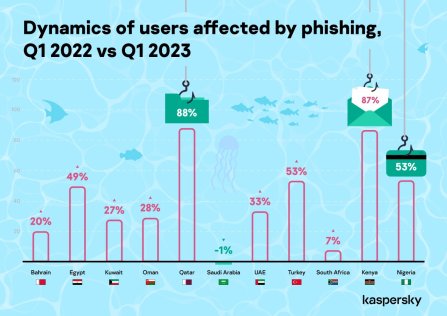Kaspersky specialists mentioned the most important cyber threats particularly focusing on governments, enterprises, enterprises and industrial organizations, whereas forecasting the traits that can affect the cybersecurity panorama sooner or later on the eighth annual Kaspersky. Cyber safety weekend – META 2023was held in Almaty, Kazakhstan final week.

The affect of synthetic intelligence, compromised company information on the Darknet, the dangers borne by deepfakes, in addition to important industry-specific threats – all these subjects had been mentioned through the convention. Particular consideration was paid to Kaspersky Cyber Immunity’s method as a technique to create options which can be virtually unimaginable to compromise and that reduce the variety of potential vulnerabilities.
“Given how rapidly the risk panorama is increasing and the variety of new units showing in customers’ every day lives, it is no shock that we detect greater than 400,000 malicious information per day, and that quantity is rising yearly 12 months,” feedback Dr. Amin Hasbini, Head of the International Analysis and Evaluation Crew (GReAT) for META at Kaspersky. “It’s essential that people, companies and governments take proactive steps to guard their techniques and information from these evolving threats. This consists of implementing sturdy cybersecurity measures, remaining vigilant in opposition to rising threats, and conserving abreast of the newest safety traits and greatest practices.”
A gradual improve in phishing assaults
Delving into social engineering cyberattacks, Kaspersky shared details about phishing assaults, that are commonest within the META area. Evaluating Q1 2022 to Q1 2023, Egypt (49%), UAE (33%), Qatar (88%), Oman (28%), Kuwait (27%) and Bahrain (20%) noticed a rise in assaults phishing on customers. However, phishing assaults in Saudi Arabia noticed a slight lower of 1% within the first quarter of 2023 in comparison with the identical time interval in 2022.
Within the African area, phishing assaults elevated in South Africa (7%), Nigeria (53%) and Kenya (87%) in Q1 2023 in comparison with Q1 2022. Turkey (53%) noticed a rise of 53% in Q1 2023 versus Q1 2022.



